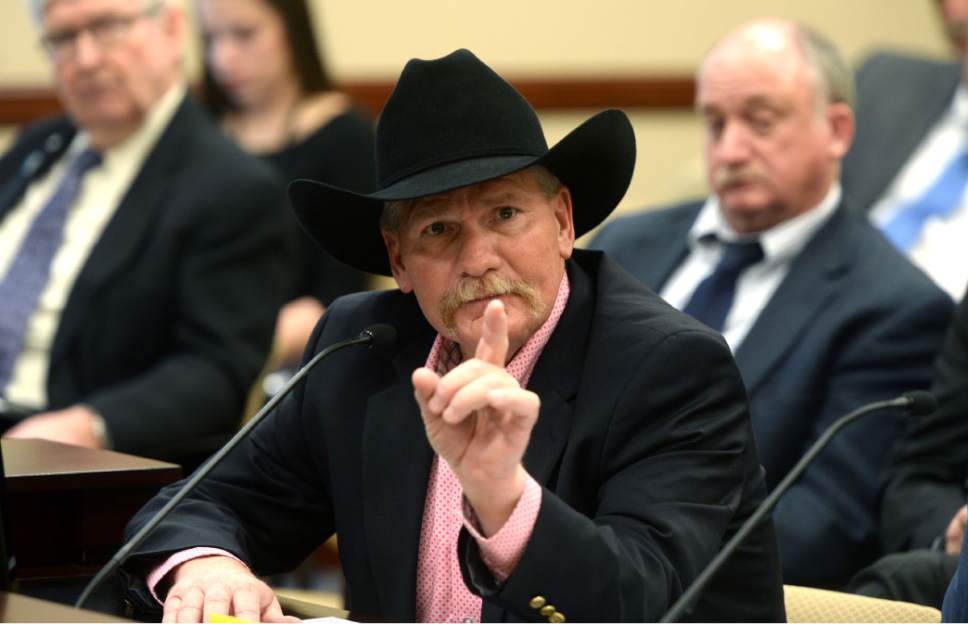This is an archived article that was published on sltrib.com in 2017, and information in the article may be outdated. It is provided only for personal research purposes and may not be reprinted.
Last month, President Donald Trump called Utah Sen. Orrin Hatch into the Oval Office, where they spent over an hour discussing various challenges facing our nation, including an issue of critical importance to Utah: presidential land grabs through the Antiquities Act. The president listened intently as Hatch detailed the devastating impacts of executive abuse.
Thanks to Hatch, Utahns were finally able to send a clear message to the president: Stop overly broad monument designations, and stop the abuse of power. And finally, we have a president who is willing to listen.
Hatch's conversation with Trump was a much-needed victory for our state. Here in Utah, overreaching monument designations are much more than an inconvenience; they are a threat to our very way of life.
With the stroke of a pen, the federal government can lock away millions of acres of public land that our families depend on for their livelihood, for recreation and, in some cases, for their very survival.
Last month, Hatch brought the president's attention to the damage caused by presidential land grabs. At long last, we have a president who not only understands the problem but who is also eager to work with us to fix it.
In the wake of the election, a group of rural county commissioners, including me, said that Hatch is strategically positioned to influence the president, and we were right. After Hatch's conversation with Trump last month about the Grand Staircase and Bears Ears, no one would dispute that Utah's most experienced senator has the president's ear on the issues that are most important to our state and our nation.
In the months to come, Hatch will continue to be an indispensable ally and a valuable adviser to the president. That's because Hatch is not only the chairman of the most powerful committee in Congress, the Senate Finance Committee, but he is also a straight shooter.
The majority of the president's key priorities — from fixing our tax code to repealing Obamacare — will require Hatch's input and ultimately his approval as chairman. To move any reform through Congress, the president will continue to need Hatch's cooperation, experience and advice.
Perhaps this is why, only a month into his presidency, Trump has already held multiple meetings with Hatch in the Oval Office. Thanks to his tremendous influence in the Senate, Hatch will continue to have more face time with the president than almost any member of Congress. That's great news for Utah.
I said it once, and I'll say it again: With the ear of the president, Hatch has both the opportunity to advocate for Western priorities and the leverage to deliver. That's why our rural counties need Hatch.
For eight years, the Obama administration laid siege to Western counties, subjecting them to a relentless barrage of damaging and unnecessary environmental regulations, land use restrictions, and in Utah's case, litigation. The administration's parting shot was the last-minute Bears Ears proclamation.
But with a new president — and with Hatch representing Utah's interests before the White House — the status quo is set to change. With Trump and Hatch working together, Utahns against regulatory overreach can push back against the previous administration's disastrous legacy and finally resolve our public lands problems.
Leland F. Pollock is a Garfield County commissioner.



